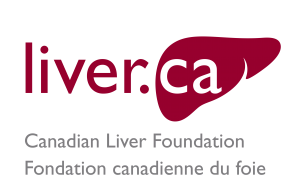Diet, Exercise and Fatty Liver Disease
Diet, Exercise and Fatty Liver Disease
Blog contributed by Dr. Katherine J. P. Schwenger and Dr. Johane Allard
Non-alcoholic fatty liver disease (NAFLD) affects approximately 25% of Canadians and is now considered the most common reason for needing a liver transplant. Current guidelines recommend a healthy diet and adequate physical activity as the best treatment for fatty liver. Here are five things we think you should know:
(1) Weight loss of 7-10% of body weight can improve even severe fatty liver disease. This can be achieved by either a low-calorie diet (reduction of about 500-1000 calories per day) or increased physical activity. However, a combination of a low-calorie diet and moderate intensity physical activity is best for long-term sustained results.
(2) Exercise is an important aspect to living a healthy lifestyle and can also significantly improve the liver in those with fatty liver disease, independent of weight loss. A recent study found that either aerobic or resistance exercise can significantly improve fat in the liver. To achieve this, one must exercise at least three times a week for a duration of 40-45 minutes.
(3) The Mediterranean Diet has been found to improve the lives of those living with fatty liver disease. Following a diet that emphasizes daily consumption of fruits and vegetables, whole grains, beans and other legumes and healthy fats such as extra virgin olive oil, nuts and seeds have been found to reduce liver fat.
(4) Gut bacteria may also play a role in fatty liver disease. New research has found that those with a fatty liver have lower abundance of healthy bacteria and less bacteria diversity, which could contribute to disease progression. However, diets rich in complex carbohydrates, such as the Mediterranean Diet, have been found to increase beneficial bacteria and may improve overall liver health.
(5) Prebiotics and Probiotics have been found in studies to improve aspects of fatty liver diseases. Although there is not enough research to definitively recommend the right type or amount, this is an area to be on the lookout for in the future!
Overall, there are a lot of exciting and new nutrition-related treatment opportunities on the horizon for those living with fatty liver disease.
About the Researchers
Dr. Katherine J. P. Schwenger, PhD, RD is a Scientific Associate III at Toronto General Hospital. She completed her dietetic training at the University of Guelph before completing her PhD at the Institute of Medical Science at the University of Toronto. Dr. Schwenger’s research focus is on nutrition and gastrointestinal disorders. She is currently conducting several studies funded by peer-reviewed agencies in patients requiring nutrition support, people with non-alcoholic fatty liver disease (NAFLD) and patients with morbid obesity undergoing bariatric surgery.
Dr. Johane Allard is Professor of Medicine at the University of Toronto and is crossed-appointed at the Department of Nutritional Sciences and Institute of Medical Sciences. She is a Senior Scientist at the Toronto General Research Institute and a member of the School of Graduate Studies at University of Toronto. She trained in gastroenterology at McGill University before completing a research fellowship funded by the National Institute of Nutrition at the University of Toronto. As a clinician-investigator, Dr. Allard’s research focuses on nutrition and gastrointestinal disorders. She is currently conducting several studies in non-alcoholic fatty liver disease (NAFLD) patients and patients with obesity undergoing bariatric surgery.


